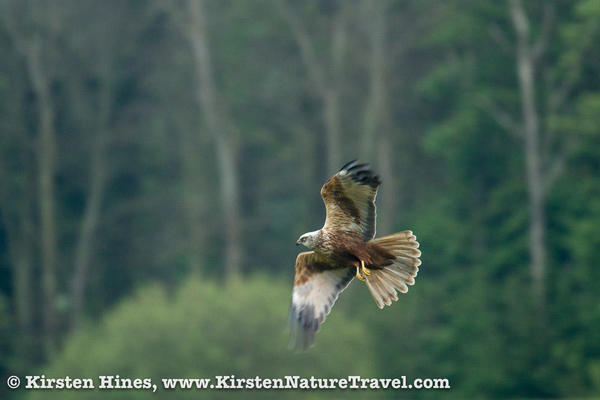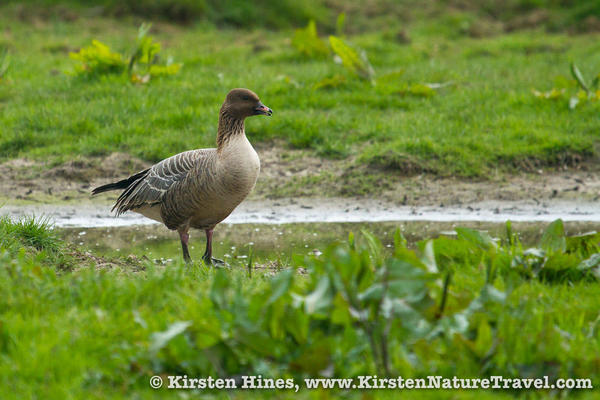A pile of whipped cream and strawberries sat before me as word rippled through lunch at the lovely Victoria Inn restaurant that a pair of Eurasian spoonbills was courting at one of the neighboring bird blinds. I shoveled my ‘Eton Mess’ into my mouth as politely as possible before grabbing my camera bag and venturing into the dreary drizzle.
A long driveway led from the Inn directly into the Holkham National Nature Reserve. Various geese, coots, moorhens and ducks milled about the marsh on either side, but I gave no more than a cursory glance. I was on a spoonbill mission. I turned down the trail that listed a bird blind among its features and followed a wooded trail along the backside of the wetlands. I was beginning to wonder whether I’d missed my turn-off when signage led me down an even smaller trail to a wooden blind. I crept up the steps and carefully pushed open the door, not wishing to disturb whomever might be inside. I needn’t have worried. It was pitch black with windows tightly shuttered. I lifted the nearest for some light and settled on the bench.

(Marsh Harrier at Holkham National Nature Reserve)
I expected to face a pond, but instead stared at an open field with tree-lined ridges beyond. I scanned the area through my lens: an Egyptian goose on a pine tree at the edge of the woods, a marsh harrier on a fence post in the distance, and barely visible beyond that a couple of trees appeared to be full of cormorant nests. I stared at the field before me wondering what wildlife marvel might stage there at the right time of year. Maybe the impressive winter flocks of pink-footed geese that the park was famed for? It was a bit late for the spectacle on my April visit, but maybe I’d see at least one.
The door creaked open and a British couple joined me in the blind. They too had heard about the spoonbills, and unlike me, they knew what they were looking for. The white flashes I’d written off as egrets flying beyond the ridge, were in fact spoonbills. The birds were terribly far away and it took staring at them through my lens an incredibly long time before I glimpsed one of their distinctive bills. It was hardly the view I’d hoped for and my face must’ve shown my disappointment for my companions were quick to point out the novelty of the sighting – Eurasian spoonbills hadn’t bred in England for 300 or so years and this was one of only a couple known locations in the country to observe the return. The information did give me a new appreciation for the weaving flight, clearly a courtship dance even at this distance. There were no photographs to be taken of the spoonbills at my distance but as a consolation prize, my wish to see a pink-footed goose was fulfilled as one landed in the field in front of the blind.





Comments (0)